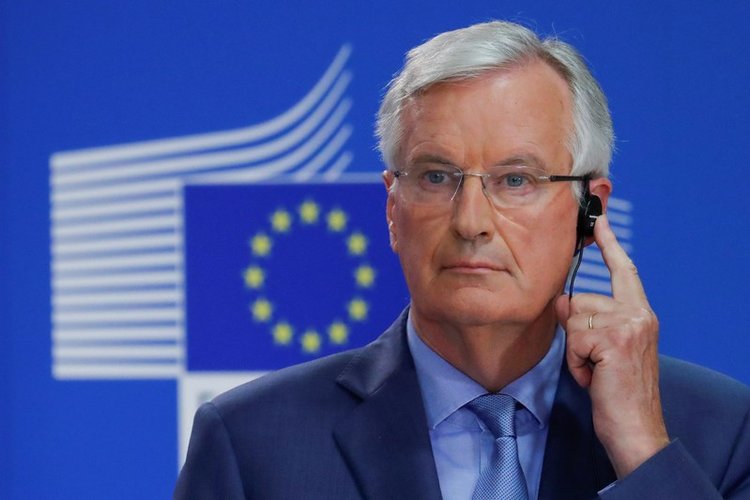
Barnier says Brexit deal could be struck in next two months.
European Union chief Brexit negotiator Michel Barnier once again struck an optimistic tone as he said a deal on the U.K.’s orderly withdrawal from the bloc is possible within eight weeks. The pound gained.
Barnier told a conference on Monday in Bled, Slovenia, that it was “realistic” and “possible” to get an agreement by the start of November to allow time for the deal to be approved by the British and European parliaments. Still, he warned that several issues, including the contentious matter of the Irish border, need to be resolved.
The pound jumped as much as 1 percent on his comments and traded at $1.3023 at 4:10 p.m. in London, up 0.8 percent on the day against the U.S. dollar after reaching the highest level in a month.
Barnier’s remarks are the latest in a series of more positive sounds from the EU side on the state of the negotiations. The bloc is exploring ways to make the section of the Brexit treaty on the Irish border more palatable to Britain; Germany has privately agreed to accept a less detailed agreement on future U.K.-EU ties; and Barnier last week told U.K. lawmakers there are “lots of useful things” in the government’s post-Brexit blueprint.
“I think it’s possible” to get a deal by the start of November, Barnier said at the conference. “We are not far from agreement.”
A spokesman for the U.K. government told reporters that there’s been “positive” engagement with EU leaders and the U.K. is working toward a deadline of a summit in mid-October. Once a deal is reached, it has to go to the U.K. Parliament for approval, and lawmakers on both sides of the chamber are preparing to sabotage the agreement.
Negotiations continue in Brussels this week before the EU’s 28 leaders discuss Brexit at a summit in Salzburg, Austria, on Sept. 20. It will be the first such discussion since June. The leaders are expected to agree to hold an extraordinary meeting in November, probably on Nov. 13, to sign off on a deal on future relations, the Guardian reported on Monday.
Divorce Deal
Brexit is being done in two parts: first the divorce deal, which needs to be settled in the next few months to ensure an orderly exit. Alongside that, the two sides will agree to an outline of what their future relationship should look like. Once the U.K. has left, that agreement will be fleshed out into a detailed trade deal.
Sounding a note of caution, Barnier said there are still three major items necessary for the divorce deal that the two sides haven’t yet agreed on: the Irish “backstop” — an insurance policy to avoid a hard border on the island of Ireland — the protection of food names linked to specific geographies, and how the deal is enforced.
“There are many issues which are not yet solved,” Barnier said. “We have to solve this issue of Ireland and some others in the next six to eight weeks.”
Irish Backstop
U.K. Prime Minister Theresa May has said the EU’s draft version of the Irish backstop, aligning Northern Ireland with the EU’s customs and single-market regulations, is unacceptable. Barnier said negotiators were looking for a solution because the EU was “obliged” to control goods at its external borders.
As for the second part of the negotiations, Barnier said there is a lot of “common ground” on future ties in the area of security and foreign policy.
“We are ready to propose,” Barnier said, “a very important, ambitious and unprecedented partnership” with the U.K.













